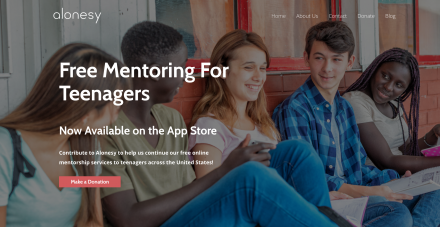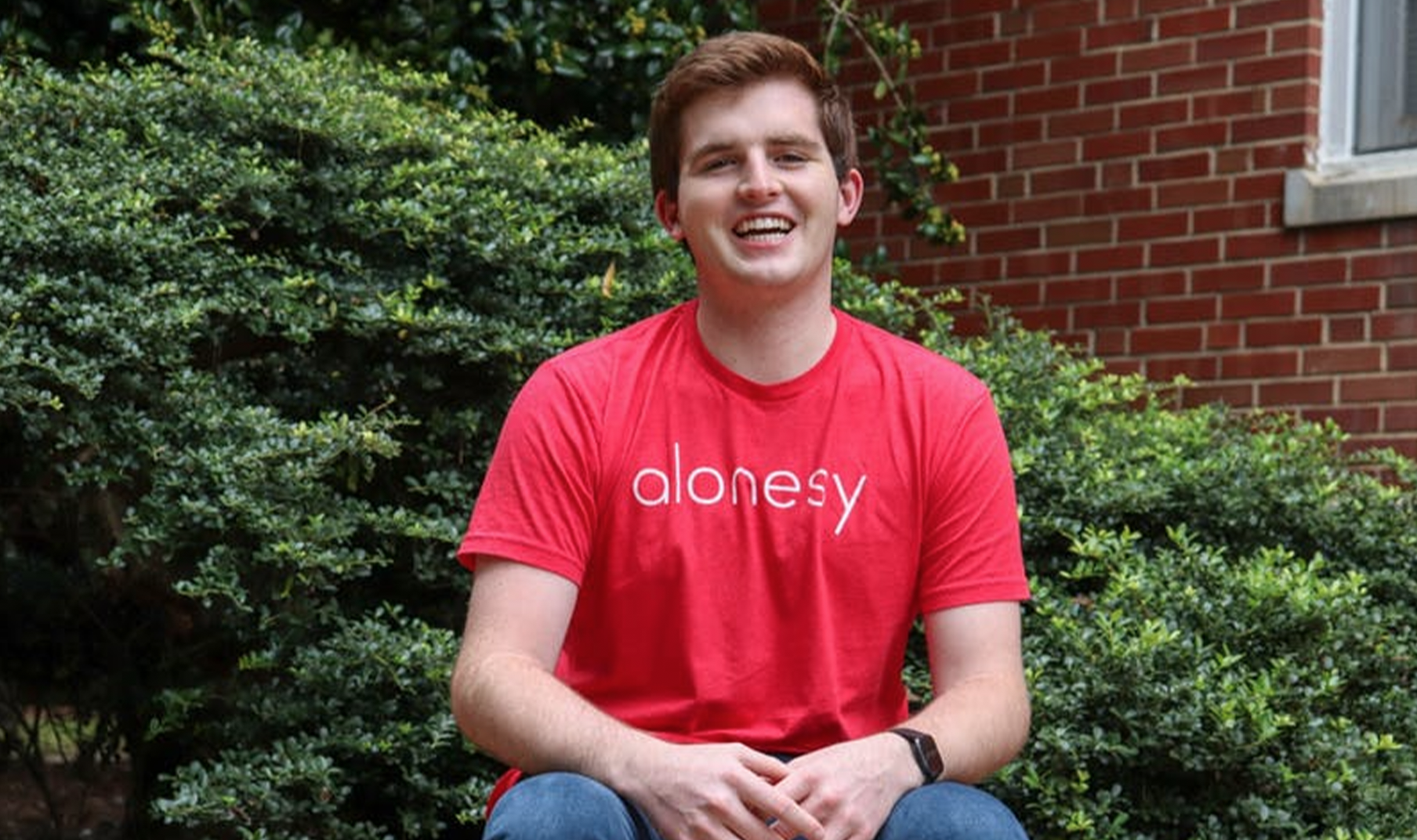Bowers, a first-year entrepreneurship major, is the CEO of his own nonprofit and has created a platform for teenagers to connect with trained mental health mentors.
While in middle and high school, Jack Bowers ‘24 struggled with his mental health. After visiting numerous therapies and treatment centers, he was shocked at the costly fees that were associated with these mental health professionals.
“Families will do anything to help their kid, and these treatment centers are not affordable to most people,” said Bowers. “My parents had to sell all their stocks to afford it, and a lot of people can’t do that.”
Bowers was inspired to create Alonesy, an outlet for teenagers aged 13-18 to have healthy discussions about their mental health with trained mentors.
Alonesy originally took the form of a blog run by Bowers, who hoped that sharing his stories would inspire other struggling teenagers. However, as the pandemic continued to spread and teenagers lost valuable social experiences, Bowers realized that he needed to do something more.
“People needed more than a blog. So we expedited the launch of the app because of COVID,” he explained. “Plus, research shows that 95 percent of teenagers have access to a smartphone, so it was pretty clear what the media needed to be to offer support.”
Bowers worked with companies such as Google and Microsoft to secure grants, and registered Alonesy as a non-profit organization with the IRS.

The app is free to use, and teenagers are able to answer a series of questions that will connect them with a mentor. The app can be used without parental permission, and users keep their identity anonymous.
“If kids have to pay for support, they aren’t going to try and get it,” said Bowers. “They’d rather spend that money on something else. So I really wanted to make it free.”
Although Bowers is the CEO of the company, Alonesy does not have a hierarchical system, and all the volunteers are treated as equals. Bowers, who is the youngest member on the board, credited the work of the rest of the organization.
“I can definitely admit that I don’t know what I’m doing all the time,” he said. “Like, when it comes to filing an annual IRS report, I have no clue what I’m doing. I think it’s important to acknowledge that.”
As Alonesy continues to grow, the company has divided into eight teams, including app developers, fundraising managers, and grant writers.
“We even have a legal team, which is so crazy to say,” said Bowers. “These lawyers work for free, everyone works for free, which is just awesome.”
The company also has over sixty mentors who volunteer their time on the app, and Bowers wanted to ensure that each one feels heard, as the company emphasizes the importance of its volunteers.

“A lot of our volunteers like to play Call of Duty or FIFA,” he said. “So I’m always willing to play with them and do our meetings there to accommodate them.”
As Bowers, who is an entrepreneurship major with a psychology minor, continues his first year at Elon, he is optimistic about the future of Alonesy. When the pandemic is under control, the company plans to tour schools across the country to increase their user base and reach an even wider audience. Bowers is eager to continue to help people in the future.
“There’s a lot of industries that need empathy to be worked in,” said Bowers. “I think it would be great from an economic and psychological standpoint to incorporate more empathy into the workplace.”
When Bowers is not in meetings with his team, he spends time delivering food to ensure that the company brings in enough funds to continue to operate free of charge.
“I’m looking forward to the day when I don’t have to do that, but I just want to make sure that we have enough donations,” said Bowers. “I really want every kid who wants help to be able to get it.”
To find more information, or to make a donation to Alonesy, click here.



